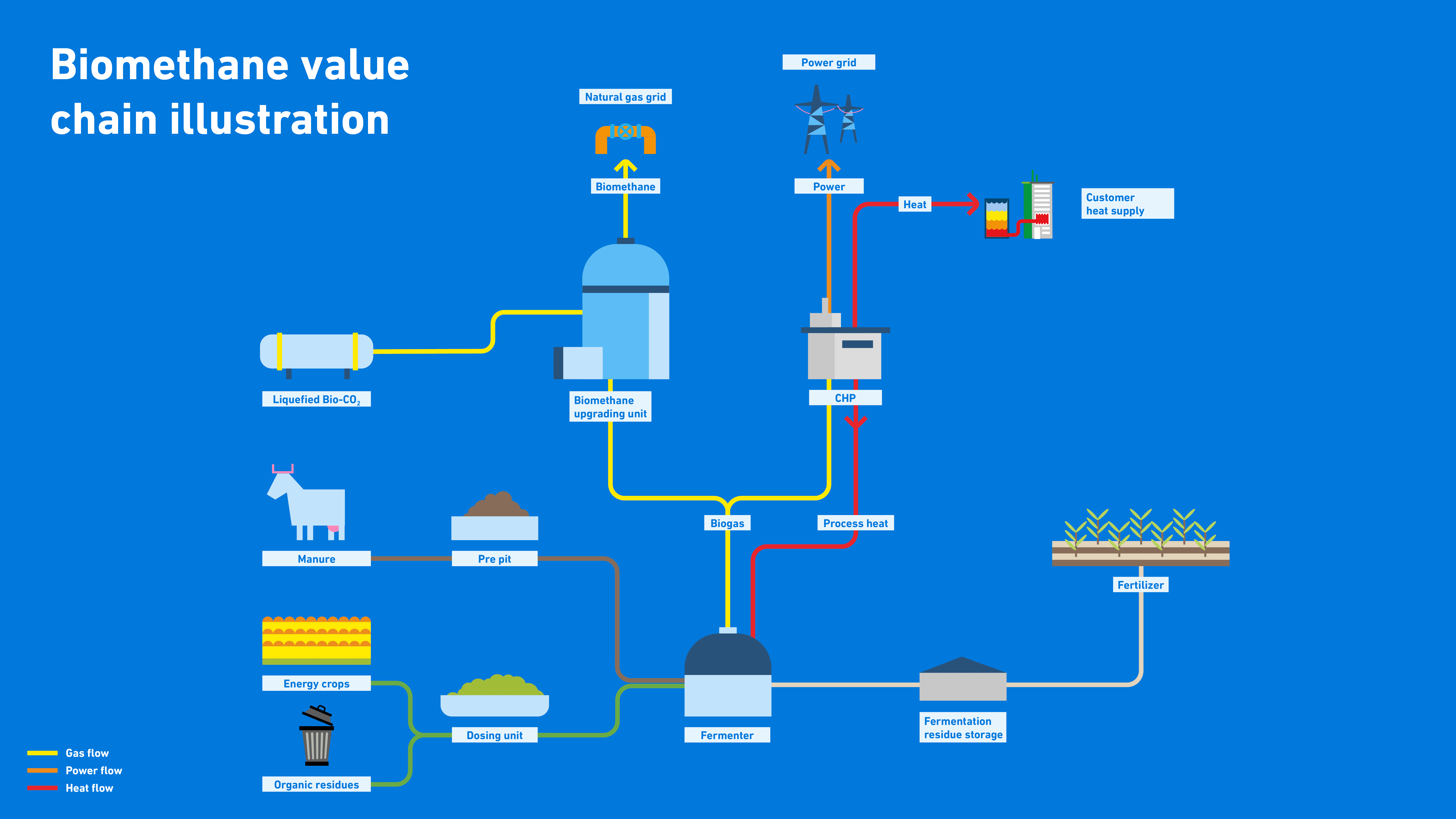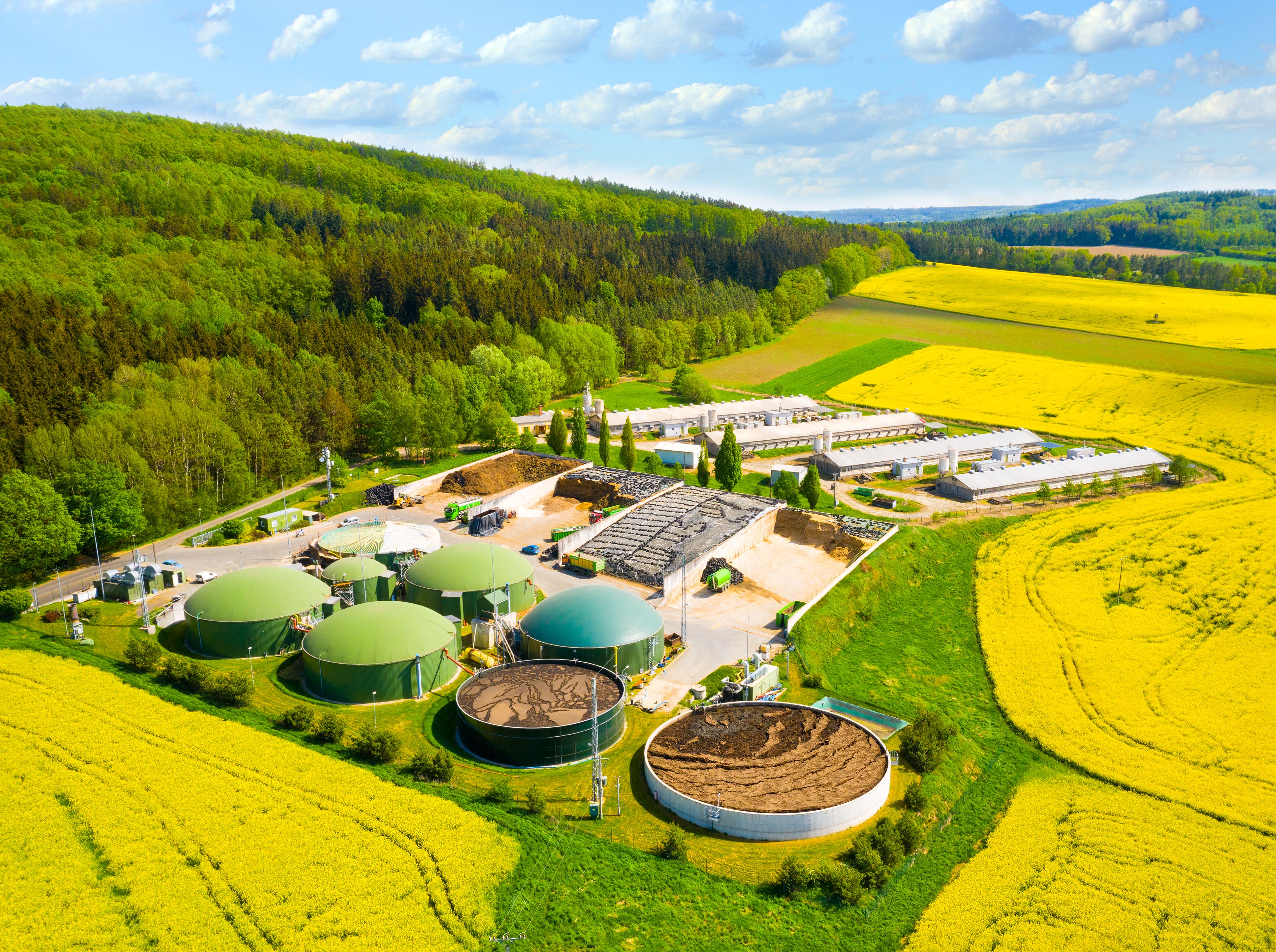Importance of biomethane in the current situation & Uniper's goals
In the course of the energy transition and in the interest of a resilient energy supply, gas supply in particular has become much more important in Europe. The European Commission's REPowerEU action plan envisages an important role for biomethane in particular, in order to increase self-sufficiency with its own (bio)natural gas and thus reduce dependence on Russian natural gas. By 2030, biomethane production in Europe is to be increased from currently 3 billion m³ to 18 billion m³, with the largest potential being agricultural residues (liquid manure, dung), organic municipal waste and waste from the food industry.

In addition to the current geopolitical influences, biomethane has gained in importance in the past, above all due to the advancing energy transition. The Renewable Energy Directive (RED) of the European Commission stipulates minimum shares of renewable energies in the energy supply as well as in the transport sector. Biomethane is a compliance option that is in high demand, especially due to its weather-independent production and GHG savings.
Biomethane is a strategically valuable and flexible energy source of the future and for this reason Uniper has decided in 2021 to establish a new entity and to become active in this market.
Biomethane and where it is used
Biomethane is produced by processing raw biogas, which is produced by fermenting biomass (e.g. renewable raw materials, agricultural residues, ...) and which contains methane (CH4) and carbon dioxide (CO2) as its main components. In order to bring the biogas to natural gas quality, which consists of more than 99 % methane, the CO2 must be separated and conditioned. Afterwards, the upgraded raw biogas can be fed into the natural gas grid as biomethane and made available for energetic (electricity, heat, cooling generation) or material use (basic industry).
Germany is Europe's largest biomethane and biogas producer with approx. 11 TWh and 1 billion m³ of biomethane and approx. 73 TWh of biogas respectively. The dynamic increase in production capacities was linked to the Renewable Energy Sources Act (EEG), which above all promoted the coupled electricity and heat production of biomethane and biogas in combined heat and power plants, so that the energy market is now the most important sales market for this.

However, feeding biomethane into the natural gas grid enables even more versatile application possibilities, since biomethane, unlike biogas, is not tied to a specific location and can thus be procured on a mass-balance basis wherever there is a gas exit point. The decoupling of production and use through the well-developed natural gas grid in Germany enables biomethane to be used seasonally, especially during times when fluctuating renewable energies produce limited electricity. Biomethane can thus be used as a longer-term storage for renewable energies, decoupled from place and time. In addition, biomethane enables direct heat generation to supply inner cities with renewable heat, e.g. in existing heating and condensing boilers. The use of biomethane as a fuel in the transport sector is also very promising, as it can be used in natural gas vehicles without further conversion. The use in transport sectors without renewable alternatives also makes biomethane very valuable, e.g. in liquid form in heavy-duty transport, but also in the maritime sector, so that biomethane can contribute to the successful decarbonisation of these sectors.
In addition to the production and marketing of biomethane, it is also possible to recover and liquefy the CO2 contained in biogas using appropriate systems. The liquefied CO2 can then be sold to companies as a technical gas or used in the food industry (as an additive in beverages or for cooling and preservation). CO2 liquefaction leads to a reduction in CO2 emissions and thus to a significantly better CO2 balance of biomethane production.
